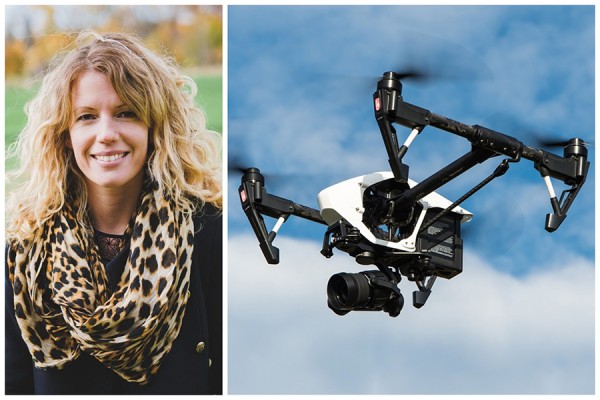 Windsor Law professor Kristen Thomasen argues that Transport Canada has not adequately addressed privacy issues in new regulations of drones.
Windsor Law professor Kristen Thomasen argues that Transport Canada has not adequately addressed privacy issues in new regulations of drones.
Windsor Law professor Kristen Thomasen argues there are more than a few holes in the new regulations on unmanned aerial vehicles, or drones, released earlier this month by Transport Canada.
The rules will take effect on June 1 and require:
- All pilots must be certified and all drones registered.
- All pilots must pass an online exam to get a certificate for basic or advanced operations.
- Pilots must be at least 14 years old for basic operations and 16 for advanced operations, unless supervised by a person having proper qualifications.
Those who fail to get certified or register their drone risk facing fines or even jail time.
Thomasen, an expert in robotics law and policy, urges Transport Canada to consider issues or privacy raised by the devices.
“Drones are the first robotic technology gaining mainstream public use in Canada. How we regulate them is important,” she says. “The new drone rules fail to consider how the technology will impact the social spaces where it is operated, especially with regard to privacy.”
Thomasen emphasizes that privacy laws do not clearly enough protect people in public or semi-public spaces.
“For example, if a drone is flown in public airspace within the legal guidelines and records activity in a public park, or even a neighbouring backyard, how will this potential invasion of privacy be addressed?” she asks.
Thomasen holds the position of assistant professor in law, robotics and society at Windsor Law, where she teaches robotics law and policy and tort law. Her research focus includes drone regulation and the privacy impacts of robotic technologies.
—Rachelle Prince
